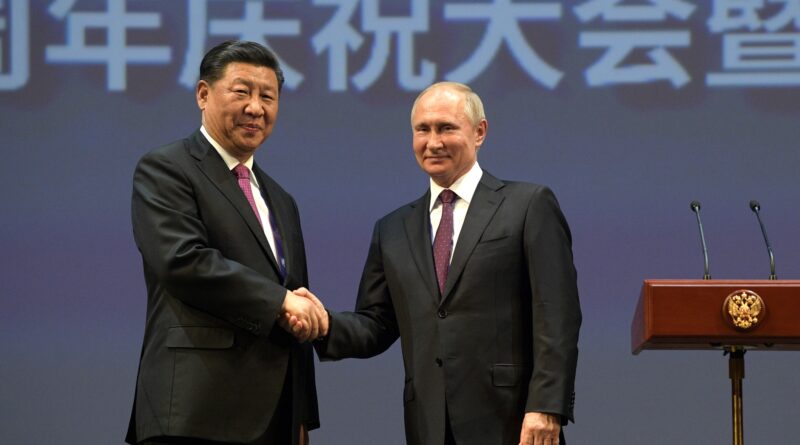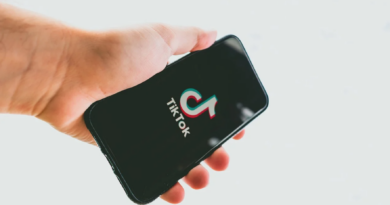Why are Russiagate propagators silent on Chinagate?
The idea that Russia helped Trump win the 2016 US election received endless coverage and triggered vast online censorship, yet China’s subtle influence over the 2020 race is not being discussed.
While alleged Russian meddling in the 2016 US presidential elections was endlessly peddled both before and after it was proven false in court, China’s visible influence over US social media networks and thus its potential to sway millions of votes in this November’s standoff is being ignored by the same outlets and politicians who propagated Russiagate.
Theories of Russia winning the election for Donald Trump served as the justification for wide sweeping censorship from media and tech giants after the 2016 elections, and it is still being discussed today by prominent Democrats such as Hillary Clinton and Kamala Harris as a possible factor in November’s vote.
China’s rise as a serious rival in terms of trade, 5G and AI has steadily brought it to the forefront of US political discussion in recent years. Trump’s imposition of tariffs on imported Chinese goods, and his battle against Chinese companies like Huawei and TikTok has created frosty tensions between Beijing and Washington.
Yet on the other side of the fence, rather than try to fend off Chinese competition, the American left, Big Tech and the establishment media, has opted for an ‘open for business’ stance with Beijing.
For the Big Tech companies, China’s massive market is too big an opportunity to get caught up with national allegiances. There are no loyalties with these giants, only to expand financially and politically by whatever means, so much so that it has proven its allegiance with Beijing over its host country, as the current US government is not willing to play by Big Tech’s rules.
No better snapshot could be provided of Big Tech’s power, morals and intentions than Google’s decision to suspend a secret military AI program with the Pentagon, Project Maven. Only when Google employees protested after catching wind of its devastating assassination capabilities was it halted in the US, but the company then proceeded in opening up an AI lab in Beijing later in 2017 which would make this technology open to the Chinese military.
That year is of particular significance as the Chinese constitution was adapted in 2017 to authorise that any incoming private technology could be shared with the CCP meaning that, by default, any US tech giant would have its secrets shared with the Chinese government and military.
Evidence of Big Tech expressly seeking to defeat Trump has been happening for years now, with whistleblowers and undercover reporters within these tech giants exposing this intent.
Google executives stated their commitment to avoid another “Trump situation”, Facebook moderators bragged about deleting pro-Trump posts, while Twitter employees discussed how they shadow-banned supporters of the president among a whole host of other censorship methods.
Even more recently and outwardly, Facebook and Twitter began deleting posts which poked fun at Democratic presidential nominee Joe Biden, while YouTube was caught erasing ‘dislikes’ from the live stream of his presidential nomination acceptance speech.
With the Chinese government and a combination of the Democratic Party, Big Tech and the mainstream media holding the common intention of ousting Trump, there is good reason to suspect a merging of forces to attain this goal on paper alone, yet recent incidents of one-sided censorship provide good reason for this suspicion.
When speaking on the Rachel Maddow Show, Russiagate’s chief propagator Hillary Clinton seemingly called on China to approach the Democratic Party candidate and assist in the election.
Evidence of this has become more prominent as November draws closer.
In May earlier this year, YouTube was found to be automatically deleting comments that contained certain Chinese-language phrases which criticised the Communist Party (CCP).
Also that month, Fei-Fei Li, the leader of Google’s aforementioned AI shift towards China and who has close ties to the Beijing government, was appointed to Twitter’s board of directors. Just days later, Trump’s tweets were, for the first time ever, met with fact check labels, scrutiny that no other head of state has faced.
Fei-Fei Li is the co-director of the Stanford Human-Centered AI (HAI) Institute and along with Jia Li, a researcher at Stanford, former Head of R&D at Google Cloud AI and ex-student of Fei-Fei, have been widely reported by Chinese media as the Google scientists who led the company’s efforts to build its AI operations in Beijing.
Also during Li’s time at Google, the company began cooperating with a leading AI research team at Tsinghua University, a renowned Chinese institution that conducts AI research for the Chinese military. Li remains an adviser to the university, whose vice-president You Zheng, stated that among the main purposes of the school’s AI research is to meet national defense needs under a “military-civilian integration policy”.
Twitter has also begun taking sweeping actions to limit the reach of QAnon content, banning 7,000 accounts and limiting the spread of content from a further 150,000 users.
In June, Reddit, which is part-owned by Chinese multinational technology conglomerate Tencent, removed the sub-reddit r/The_Donald which had nearly 800,000 users and, with it, hundreds of thousands of posts and millions of comments, going back a number of years.
Tencent, the Chinese firm that owns two of the world’s most used social networks in WeChat and QQ, collaborates with the Chinese government on censorship and surveillance. Dutch hacker Victor Gevers revealed that the content of millions of conversations on Tencent applications among users at internet cafes are being passed on to police stations across China along with the users’ identities.
A sample of cases tracked in Freedom House’s China Media Bulletin over the past year feature penalties against numerous WeChat users for mocking president Xi Jinping, criticizing judicial officials and sharing information about human rights abuses, sometimes resulting in years in prison.
TikTok, which is owned by Bytedance and has close ties to the Chinese government, recently deployed two notoriously biased US fact-checkers to censor political content ahead of the US elections. Several company photographs show employees attending CCP ‘study sessions’.
Members of staff regularly get together to study Xi Jinping’s speeches and pledge loyalty to the party.
Despite the Chinese social network’s attempts to give off a politically neutral image by banning political ads, employing partisan outlets to run the rule over what is true or false in such biased and subjective ways to its 165 million US users appears a starkly political move.
TikTok has headquarters in California and has hired lobbyists and politicians to fight for the company’s interests amid the US government’s concerns over privacy violations.
The viral social media app has bulked up its lobbying to deter several potential actions in Washington that could threaten its future, hiring a small army of around 35 lobbyists to work on its behalf, among them two former US congressmen as to review its content moderation policies are now advocating for the company’s, and by default the CCP’s, interests.
And this is scraping the surface.
If Russiagate caused such an ethical stir for so many members of the public, the media and politicians on the grounds that a hostile foreign power was to some degree meddling in the democratic process of the United States, then the same questions must surely be begged for the way China is influencing public thought ahead of the 2020 vote, yet it has received zero mainstream discussion.
Big Tech, the media and Democratic Party politicians are not only willing to let it slide but are keen on this trade-off of allowing more influence of and collaboration with China in exchange for ousting Trump, and that sets an even more worrying precedent in the long-term.
The wider impact of this trade-off with China has the potential to drastically alter the US’ stance on incredibly important matters such as AI, surveillance, trade, data privacy matters, surveillance and, on more worryingly, democracy itself.




